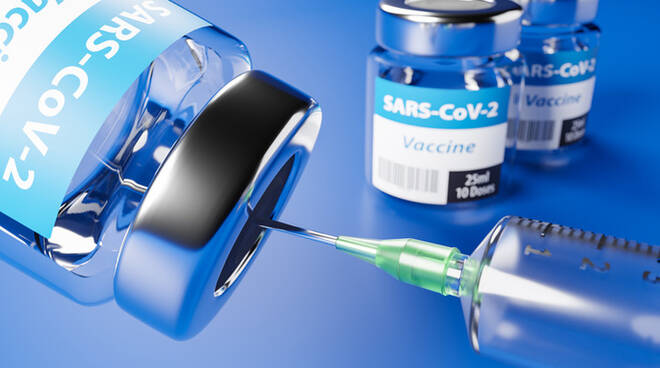WHY DO NOT PEOPLE TRUST THE PFIZER? For the experience …


Medicines save lives. Medicines are dangerous. This is a truth that shouldn't be questioned. According to the same figures from the American Medical Association, medical treatment has become the third leading cause of death in the United States, but few would argue that medical treatment is not helpful. But when a government buys medicines and vaccines en masse from private companies that impose a complete waiver of liability, perhaps it is fair to ask if there is something strange. All this has repercussions in a sort of widespread skepticism towards Big Pharma and, above all, towards Pfizer.
One of the reasons people believe in Big Pharma conspiracy theories is because some of them are true. Let's see Pfizer …
In 2004 advertising for Zoloft claimed that over 16 million Americans had social anxiety disorder. Too bad a study conducted by Pfizer (the manufacturer himself) found that participants had better overcome social anxiety with "exposure therapy", including consulting with a primary care physician about their symptoms and psychological therapies, rather than with the medicine.
When the Upjohn Company (now Pfizer) developed Minoxidil, a drug originally produced to lower blood pressure, they discovered that it could cause hair regrowth in some bald patients. So they simply changed the marketed effect for the so-called side effect and had a baldness drug that lowered blood pressure as a side effect. In the end, everything is broth. After all, even Viagra (another Pfizer product) came from a similar story ..
The ALLHAT study (Trial Antihypertensive and Lipid-lowering Treatment for the Prevention of Heart Attacks) aimed to compare the effectiveness of four drugs in preventing the complications of hypertension. It was initially intended to continue for between four and eight years, but part was discontinued prematurely because participants assigned to Cardura (made by Pfizer) were developing significantly more cardiovascular complications than those taking a regular diuretic. At the time the results were published in the Journal of the American Medical Association (JAMA), about $ 800 million worth of Cardura were sold each year, but the generic diuretic was shown to be more effective in preventing complications of high blood pressure at one-seventh of the cost. Taking advantage of the fact that most doctors were unaware of the research, Pfizer hired consultants to limit the damage to the research. The American College of Cardiology (ACC) issued a press release recommending that doctors "discontinue use" of Cardura, but a few hours later downgraded its formulation to "re-evaluate", perhaps because Pfizer paid $ 500,000 to ' year to ACC.
But the beauty is that those who finance the study come out as the winner. After all, companies commonly use positive test results to encourage doctors to prescribe their drug rather than a competitor's. When authors of a Journal of Psychiatry survey looked at the trials, they found a curious thing: in five tests paid for by Eli Lilly, his drug Zyprexa was superior to Risperdal, a drug made by the Janssen company, but when Janssen sponsored its own trials, Risperdal was the winner three times out of four. When Pfizer funded the studies, its Geodon drug was the best. The results show that in 90% of cases those who pay for the study turn out to have the best drug. Who knows why.
A 2017 article noted that "prices of US-made pharmaceuticals have risen over the past decade six times the total cost of goods and services." In one famous case Mylan was able to raise the price of the EpiPen by more than 450 percent between 2004 and 2016 – despite the fact that the adrenaline in each injection cost only about $ 1 – because it was the only licensed supplier for the product. This example, while extreme, is sadly not exceptional. And when they tried to cut prices, Pfizer, Biogen, Gilead Sciences, Amgem, AbbieVie, Turing Pharmaceutical, Envizo, Valeant Pharmaceuticals and Jazz Pharmaceuticals (just to name a few) obtained a kind of monopoly on the pharmaceutical supply of the USA, in the face of the market ..
so Pfizer has certainly produced a safe vaccine even without the usual 5-10 years of testing, but you will also understand why people are skeptical …

Thanks to our Telegram channel you can stay updated on the publication of new articles of Economic Scenarios.
The article WHY PEOPLE DON'T TRUST THE PFIZER? For the experience… it comes from ScenariEconomici.it .
This is a machine translation of a post published on Scenari Economici at the URL https://scenarieconomici.it/perche-la-gente-non-si-fida-della-pfizer-per-lesperienza/ on Thu, 17 Dec 2020 08:00:46 +0000.
